|
Nobel Prizes |
The
Nobel Prizes are annual international awards bestowed by
Scandinavian committees in recognition of cultural and scientific
advances. The will of the Swedish chemist Alfred Nobel, the
inventor of dynamite, established the prizes in 1895. The prizes
in Physics, Chemistry, Physiology or Medicine, Literature, and
Peace were first awarded in 1901.
The Peace Prize is awarded in
Oslo(Oslo is the cultural, scientific, economic and
governmental centre of Norway), Norway, while the other prizes are
awarded in Stockholm, Sweden. Each Nobel Prize is regarded as the
most prestigious award in its field.
In 1968, Sveriges Riksbank
instituted an award that is often associated with the Nobel
prizes, the Sveriges Riksbank Prize in Economic Sciences in Memory
of Alfred Nobel. The first such prize was awarded in 1969.
Although it is not an official Nobel Prize, its announcements and
presentations are made along with the other prizes.
The Royal Swedish Academy of
Sciences awards the Nobel Prize in Physics, the Nobel Prize in
Chemistry, and the Nobel Memorial Prize in Economic Sciences. The
Nobel Assembly at Karolinska Institutet awards the Nobel Prize in
Physiology or Medicine. The Swedish Academy grants the Nobel Prize
in Literature. The Nobel Peace Prize is not awarded by a Swedish
organisation but by the Norwegian Nobel Committee.
Each recipient, or laureate,
receives a gold medal, a diploma, and a sum of money which depends
on the Nobel Foundation's income that year. In 2011, each prize
was worth SEK 10 million (c. US$1.45 million, €1.15
million). The prize is not awarded posthumously; however, if a
person is awarded a prize and dies before receiving it, the prize
may still be presented." A prize may not be shared among
more than three people. The average number of laureates per prize
has increased substantially over the 20th century. |
History |
|
Alfred Nobel
was born on 21 October 1833 in Stockholm, Sweden, into a family of
engineers. He was a chemist, engineer, and inventor. In 1894 Nobel
purchased the Bofors iron and steel mill, which he made into a
major armaments manufacturer. Nobel also invented ballistite, a
precursor to many smokeless military explosives, especially the
British smokeless powder cordite. Nobel was even involved in a
patent infringement lawsuit over cordite. Nobel amassed a fortune
during his lifetime. Most of his wealth was from his
355 inventions, of which dynamite is the most famous
In 1888, Alfred
was astonished to read his own obituary, titled ‘The merchant of
death is dead’, in a French newspaper. As it was Alfred's
brother Ludvig who had died, the obituary was eight years
premature. The article disconcerted Nobel and made him
apprehensive about how he would be remembered. This inspired him
to change his will. On 10 December 1896 Alfred Nobel died in
his villa in San Remo, Italy from a cerebral haemorrhage. He was
63 years old. |
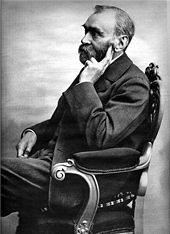
Alfred Nobel had the unpleasant surprise of
reading his own obituary, titled The merchant of death is dead,
in a French newspaper. |
|
To widespread astonishment, Nobel's last will specified that his
fortune be used to create a series of prizes for those who confer
the "greatest benefit on mankind" in physics, chemistry,
peace, physiology or medicine, and literature.[8] Nobel wrote
several wills during his lifetime. The last was written over a
year before he died, signed at the Swedish-Norwegian Club in Paris
on 27 November 1895. Nobel bequeathed 94% of his total
assets, 31 million SEK (c. US$186 million, €150 million in
2008), to establish the five Nobel Prizes. Because of
scepticism surrounding the will, it was not until 26 April 1897
that it was approved by the Storting in Norway. The executors
of Nobel's will, Ragnar Sohlman and Rudolf Lilljequist, formed the
Nobel Foundation to take care of Nobel's fortune and organise the
award of prizes.
Nobel's instructions named a Norwegian Nobel
Committee to award the Peace Prize, the members of whom were
appointed shortly after the will was approved in April 1897. Soon
thereafter, the other prize-awarding organisations were
established. These were the Karolinska Institutet on 7 June, the
Swedish Academy on 9 June, and the Royal Swedish Academy of
Sciences on 11 June. The Nobel Foundation reached an agreement
on guidelines for how the prizes should be awarded, and in 1900,
the Nobel Foundation's newly-created statutes were promulgated by
King Oscar II.[8] In 1905, the Union between Sweden and Norway was
dissolved. Thereafter Norway's Nobel Committee was responsible for
awarding the Nobel Peace Prize and the Swedish institutions
retained responsibility for the other prizes. |
|
More details |
| Nobel Personalities in India |
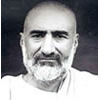 |
Abdul Ghaffar
Khan
He was known as the 'Frontier Gandhi'. He was a
nationalist Muslim leader of the North-West Frontier Province. He
first started a militant organisation known as the 'Red Shirt',
and later on joined the non-violent Civil Disobedience Movement
started by Mahatma Gandhi. |
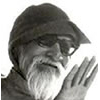 |
Acharya Vinoba
Bhave
Saintly personality; had devoted his life to
social welfare; founder of the Bhoodan movement. |
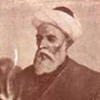 |
Amir Khusrau
Assumed 'Parrot of India', was a famous poet and author who wrote
in poetry and prose and also composed music. He enjoyed the
patronage of successive Sultans of Delhi from Balban to
Ghiyas-ud-din Tughluq. He died in 1324-25. His works include
Tughluqnamah and the Tarikh-i-Alai. |
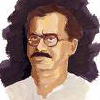 |
Anand Mohan
Bose
He
was a prominent Indian public man in his times. He was the first
Indian to be a Wrangler of Cambridge University in 1873. He was
the founder-secretary of the Indian Association which was
established in Calcutta in 1876, and presided over the 14th
session of the Indian National Congress held in Ma |
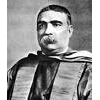 |
Ashutosh
Mukherjee
He was an eminent lawyer
and educationist. He was certainly a maker of modern Bengal, if
not of India, by virtue of his eminent services to the cause of
education. At the early age of 25 he became a member of the Senate
of the Calcutta University of which he became the vice-chancellor. |
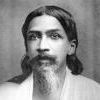 |
Aurobindo Ghosh
An ardent nationalist who
later became a saint, was educated in England. His views were
readily accepted by Lala Lajpat Rai of Punjab and Bal Gangadhar
Tilak of Maharashtra and led to the formation of an extremist
school within the Congress. |
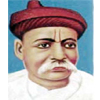 |
Bal Gangadhar
Tilak
Patriot and statesman, known as Lokmanya. He
organised Extremist Party within the Congress with Lala Lajpat Rai
and Bipin Chandra Pai. Britishers called him "Father of
Indian Unrest". He gave the clarion call "Swaraj is my
birth right". Tilak was the founder-editor of Mahratta
(English) and Kesar |
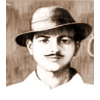 |
Bhagat Singh
Known as Shahid-e-Azam. Founded Naujawan Bharat
Sabha. Exploded bomb in Central Legislative Assembly at Lahore on
April 8, 1929. He was arrested and sentenced for life. He along
with Sukh Dev and Shivram Rajguru, was hanged on March 23, 1931
for participating in Lahore conspiracy. |
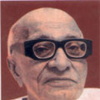 |
Chakravarti
Rajagopalachari
A prominent Indian
politician, born in South India in 1879. He was the General
Secretary of the Indian National Congress in 1921-22 and was a
member of the Congress Working Commitee. Rajagopalachari was the
Chief Minister of Madras from 1937-39. |
|
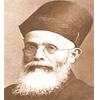
|
Dadabhai
Naoro Ji
He
was elected president of the Indian National Congress at its
second session held in Calcutta in 1886. He was the first
Indian to be elected a member of the House of Commons in
England on a ticket of Liberal Party. Twice again, in 1893 and
in 1906, he was elected president of the INC. |
|
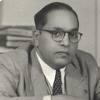
|
Dr. B. R.
Ambedkar
A
prominent leader of the Scheduled Castes. Built up a party of
the untouchables, became a member of the Constitutent Assembly
and piloted through it the Indian Constitution Act which
declared India to be Republic. He also piloted the Hindu Code
through the Indian Legislature. |
|
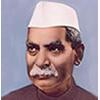
|
Dr. Rajendra
Prasad
He
was the first President of the Republic of India. Born in Bihar
in 1884, educated at the Calcutta Universty, he began his
career as an advocate and soon commanded a very large practice
at Patna High Court. Prasad became the president of Congress in
1934, 1939 and 1947; a minister in Nehru's cabin
|
|
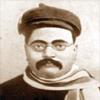
|
Gopal
Krishna Gokhale
He
was a prominent Indian nationalist, and presided over the 1905
session of the Indian National Congress. In 1905 he founded at
Poona the Servants of India Society. He died in 1915. He is
considered as the 'Political Guru' of Gandhiji. |
|
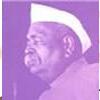
|
Govinda
Ballabh Pant
The celebrated Sanskrit
grammarian, was the author of Ashtadhyayi. He was one of the
leading members and leaders of the Indian National Congress. He
became the Chief Minister in his native province of Uttar
Pradesh after independence.
|
|
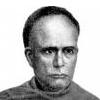
|
Ishwar
Chandra Vidyasagar
Social reformer and
educationist from Bengal and a pioneer in the field of primary
education and widow re-marriage.
|
|
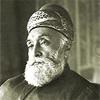
|
Jamshedji
Tata
Parsi industrialist
and philanthropist. Father of Indian industry, founded Tata,
Iron and Steel Company in Bihar.
|
|
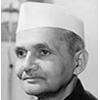
|
Lal Bahadur
Shastri
Prime Minister of India from May, 1964 to
his death on 11 January, 1966. He was conferred Bharat Ratna
posthumously. He was a martyr for the cause of peace between
India and Pakistan at Tashkent.
|
|
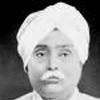
|
Lala Lajpat
Rai
Indian national
leader known as "Lion of Punjab". Founder editor of
Bande Mataram, The Punjabeeand The People. Died of injuries
caused by police lathi-charge while leading a demonstration
against Simon Commission at Lahore in 1928. Author of Young
India, The Arya Samaj and England's Debt to India.
|
|
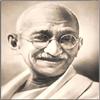
|
Mohandas
Karamchand Gandhi
Better known as Mahatma Gandhi, was born on
October 2, 1869 at Porbandar in Gujarat. Became a
barrister-at-law (1891) in England. Went to South Africa in
1893. Stayed there till 1914 for the cause of the emancipation
of the Indians from the insulting life.
|
|
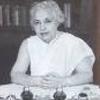
|
Mrs.
Vijayalakshmi Pandit
Born in 1900, was a
talented daughter of Pandit Motilal Nehru. She held many high
offices after Indian independence including the post of India's
High Commissioner in England (1955-61) and India's Ambassador
to the U. S. S. R. as well as to the U. S. A.
|
|
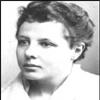
|
Mrs. Annie
Besant
English theosophist,
bom in London in October 1847. She founded the Central Hindu
College at Banaras and was elected president of the
Theosophical Society in 1907. In 1916 she founded the Indian
Home Rule League and became its first president and in 1917. |
|
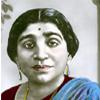
|
Mrs.
Sarojini Naldu
The
most talented Indian lady, born of Bengali parents, was a poet
and orator who took a prominent part in Indian politics. She
presided over the Kanpur session of the Indian National
Congress in 1925 and was the first lady to be appointed a state
Governor in the Republic of India.
|
|
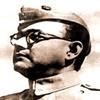
|
Netaji
Subhash Bose
Popularly known as
Netaji, was born on January 23, 1879, at Cuttack. He passed the
Indian Civil Service Examination in 1920. He joined the Indian
National Congress in 1921. In 1938 he was the president of the
INC at its Haripura session and in 1939 he was elected
president of its Tripuri session.
|
|
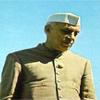
|
Pandit
Jawahar Lal Nehru
He was the first Prime Minister of Independent India and is
known as the architect of modem India. He was born in Allahabad
on Novemeber 14,1889. In 1928 be became the General Secretary
of the Indian National Congress and in 1929 its President. At
the Lahore session under his Presidentship was pass |
|
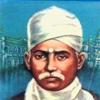
|
Pandit Madan
Mohan Malviya
A leading nationalist leader, prominent
educationist and social reformer. Later on joined the second
session of the Indian National Congress held in 1886 and twice
became its President in 1909 and 1918. His greatest achievement
was the foundation in 1915 in Benaras of the Hindu University. |
|
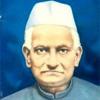
|
Pandit
Motilal Nehru
A renowned Indian
patriot, was born on 6th May, 1861 in Delhi. He began his
career as a lawyer at the Allahabad High Court, joined the
Indian National Movement and started a journal named The
Independent' to support the cause of Indian Nationalism. Along
with C. R. Das he formed the Swarajist Party |
|
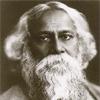
|
Rabindranath
Tagore
Poet, novelist, patriot, educationist,
essayist, painter and philosopher. He founded Shantiniketan
(now Viswabharati University) in West Bengal. The first Asian
to receive Nobel Prize in Literature (for Gitanjati in 1913),
writer ofNational Anthems of India and Bangladesh. |
|
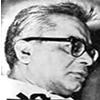
|
Ram Manohar
Lohla
A social and political revolutionary, he
founded the'Samajwadi Party' after difference of opinion with
the Congress.
|
|
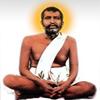
|
Ramakrishna
Paramhansa
He
was a very great spiritual teacher of the Hindus in modern
times. His two-noteworthy disciples were Keshavchandra Sen and
Swami Vivekanand.
|
|
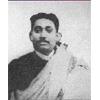
|
Rasbehari
Basu
He was elected president of the Surat
session of the Indian National Congress in 1907 in which the
Moderates and Extremists came to a serious clash. Next year he
presided over the Madras session of the INC. |
|
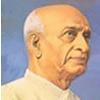
|
Sardar
Vallabhbhai Patel
A
renowned Indian patriot and politician, was born on the 31st,
October, 1875 in Gujarat and began his career as a lawyer. He
took a leading part in the Bardoli Satyagraha movement. In 1931
he became the president of the Congress. He joined the "interim
Government" set up in 1946 as the Home Ministe |
|
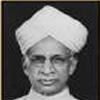
|
Sarvapalli
Radha Krishan
The second President of the Republic of
India. Radha Krishnan was appointed as India's ambassador to
the USSR in 1949. In 1962 he became the President of India. His
birthday, Sept 5, is celebrated as Teacher's Day.' |
|
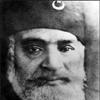
|
Shaukat Ali
A prominent leader and politician amongst
the Indian Muhammadans. He along with his brother Muhammad All,
led the Khilafat Movement in 1919-20. He also joined the Indian
National Congress and the non-co-operation movement. |
|
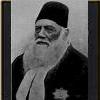
|
Sir Sayyid
Ahmed Khan
He was a prominent leader of the Indian
Muhammadans. Remained loyal to the British during the Sepoy
Mutiny (1857-58), founded the Muhammadan Anglo-Oriental College
at Aligarh in 1875. In 1920 the college was raised to the
status of University and called the Aligarh Muslim University.
|
|
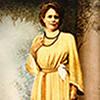
|
Sister
Nivedita
A famous disciple of
Swami Vivekananda, was an Irish lady named Miss Margaret Nobel.
|
|
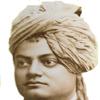
|
Swami
Vivekananda
Disciple of Rama
Krishna Paramahansa, and founder of Ramakrishna Mission at
Belur. He championed the supremacy of Vedantic philosophy and
his talk at the Chicago conference of world religions in 1893
made westerners realise the greatness of Hinduism for the first
time. |
|
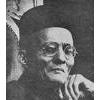
|
V. D. C
Savarkar
He founded Mitra Mandal aimed at achieving freedom by armed
rebellion, founded Abhinav Bharat, started Free Indian Society
in England (London). Savarkar was arrested in Nasik conspiracy
case and sentenced to transportation for life and freed in
1937. He authored Indian War of Independence. |
|
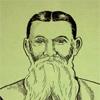
|
Wumesh
Chandra Banerjee
The first president of the Indian National Congress held at
Bombay in 1885. He was made Congress President a second time at
its Allahabad session in 1892.
|
|
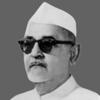
|
Zakir
Hussain
Proposed
Wardha Scheme of education, formerly Vice-Chancellor of Jamia
Millia. He was elected as President of India in 1967.
|
|
|
|
|